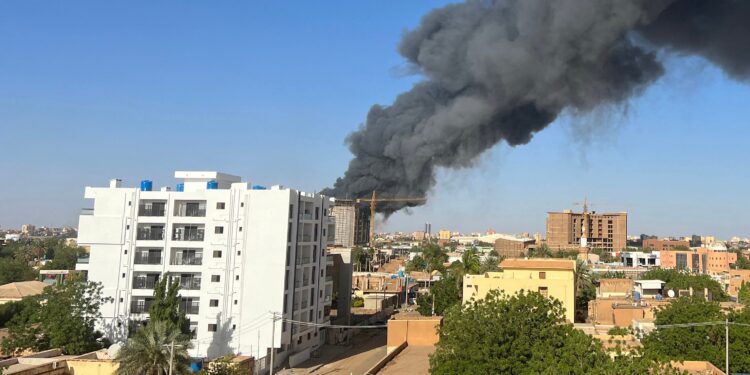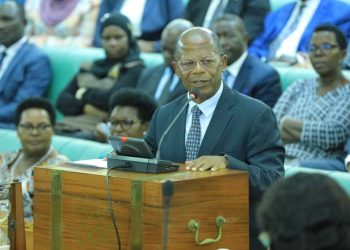Dr. Rashid Yahya Ssemuddu the Ugandan ambassador to Sudan stated yesterday that ongoing violent fighting between competing government military units makes it extremely challenging to securely rescue Ugandans who are stranded within Sudan.
Ugandan nationals have been advised by Dr. Rashid Yahya Ssemuddu to continue sheltering in place. The warning advises Ugandans to keep their distance as the embassy closely follows the ongoing crisis in Sudan and the war that started on Saturday, April 15, between the Sudan Armed Forces (SAF) and the Rapid Support Forces (RSF).
The ambassador claimed that despite efforts to evacuate Ugandans made by the government of Uganda through the embassy, the situation remained unstable and challenging as a result of the opposing forces’ failure to abide by a temporary ceasefire agreement.
“We are working on the evacuation plans. We already contacted the relevant authorities and we are waiting for their approval but it’s still tricky,” he said yesterday.
At least 300 Ugandans are stranded In Khartoum City and the neighboring environs. Following the brutal October 25, 2021 coup, in which the military overthrew a coalition of transitional civil-military forces, fighting is raging between the various military and paramilitary organizations that have taken control.
120 workers from both the formal and informal sectors as well as 116 students, 14 hospital employees, 19 people traveling, and 6 people on quick trips to Khartoum are among the trapped Ugandans.
Dr. Ssemuddu disclosed that the German government’s attempt to remove 150 of its citizens had been unsuccessful.
“They failed after completing all the necessary arrangements,’’ he said.
The probability of an early evacuation of foreigners remains in doubt in the most recent notification from the Sudanese government through its ministry of foreign affairs.
In the Tuesday press release the Sudanese foreign ministry requested that all foreigners and Sudanese citizens stay indoors.
Dr. Ssemuddu issued a specific warning on Monday instructing Ugandans to continue relocating to their homes, schools, hotels, and other places where the war had them. Seven contacts were listed in the warning, along with their phone numbers, so that they could be contacted in an emergency.
“We are coordinating with authorities back home and key agencies to facilitate evacuation plans,” he said.
Dr. Ssemuddu revealed that on Tuesday, they were able to relocate the 19 Muslim pilgrims from Uganda who were traveling to Mecca in Saudi Arabia from the bombed-out airport hotel Al Kabri Alasham.
The pilgrims are currently being protected in Omdurman’s Al-Ebdaa Hotel Apartments on Al-Fatihab Street, South Siraj Station, Khatourm, which are comparatively safer.
Dr. Semuddu’s assertion was corroborated by Mr. Muhamad Shaawal, the director of Al-shwaal Hajj and Umrah Ltd, which organized the pilgrims’ voyage.
“We thank the government, our embassy in Sudan, the Sudanese government which provided security for our brothers and sisters,” he said.


































































